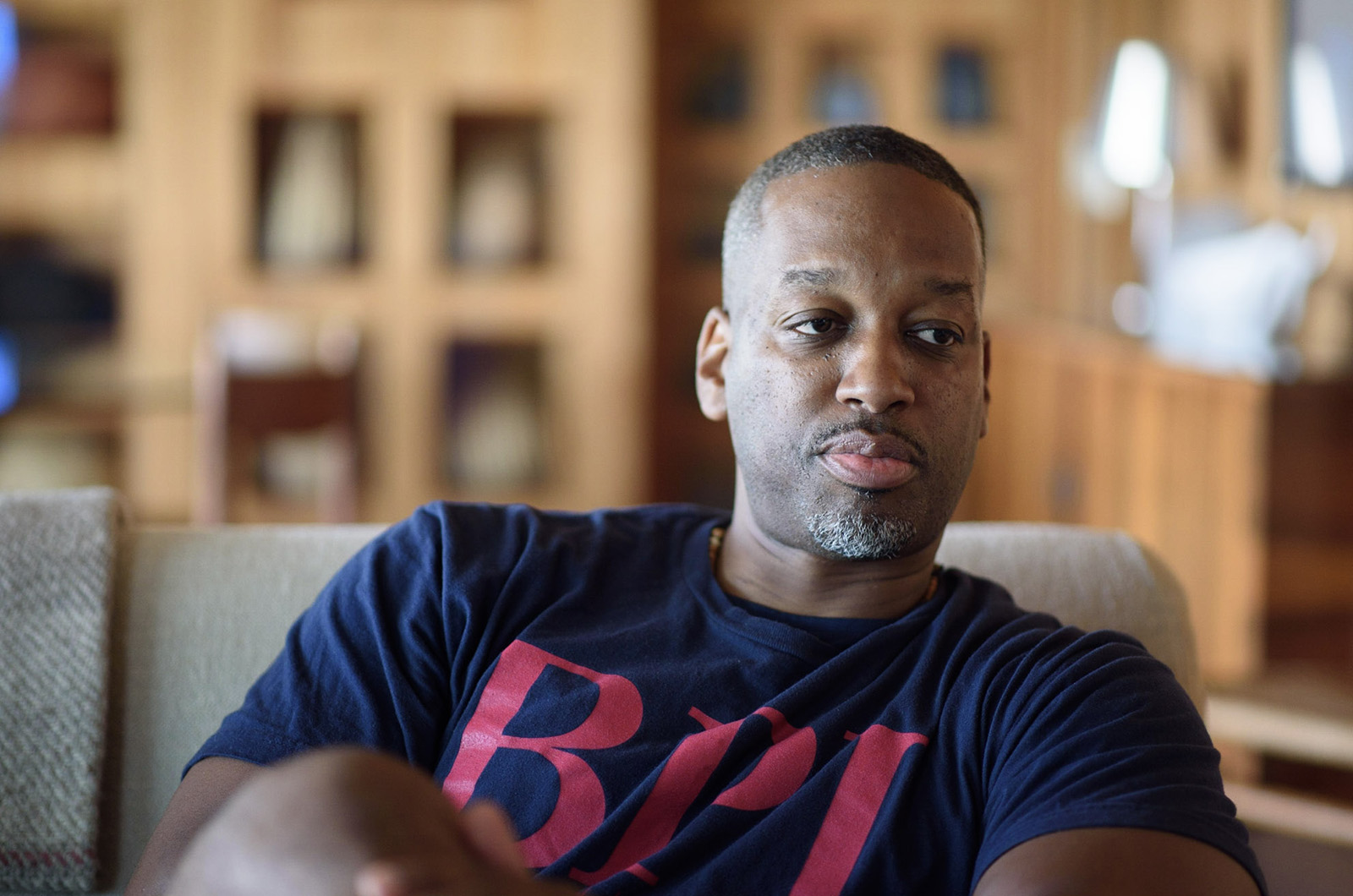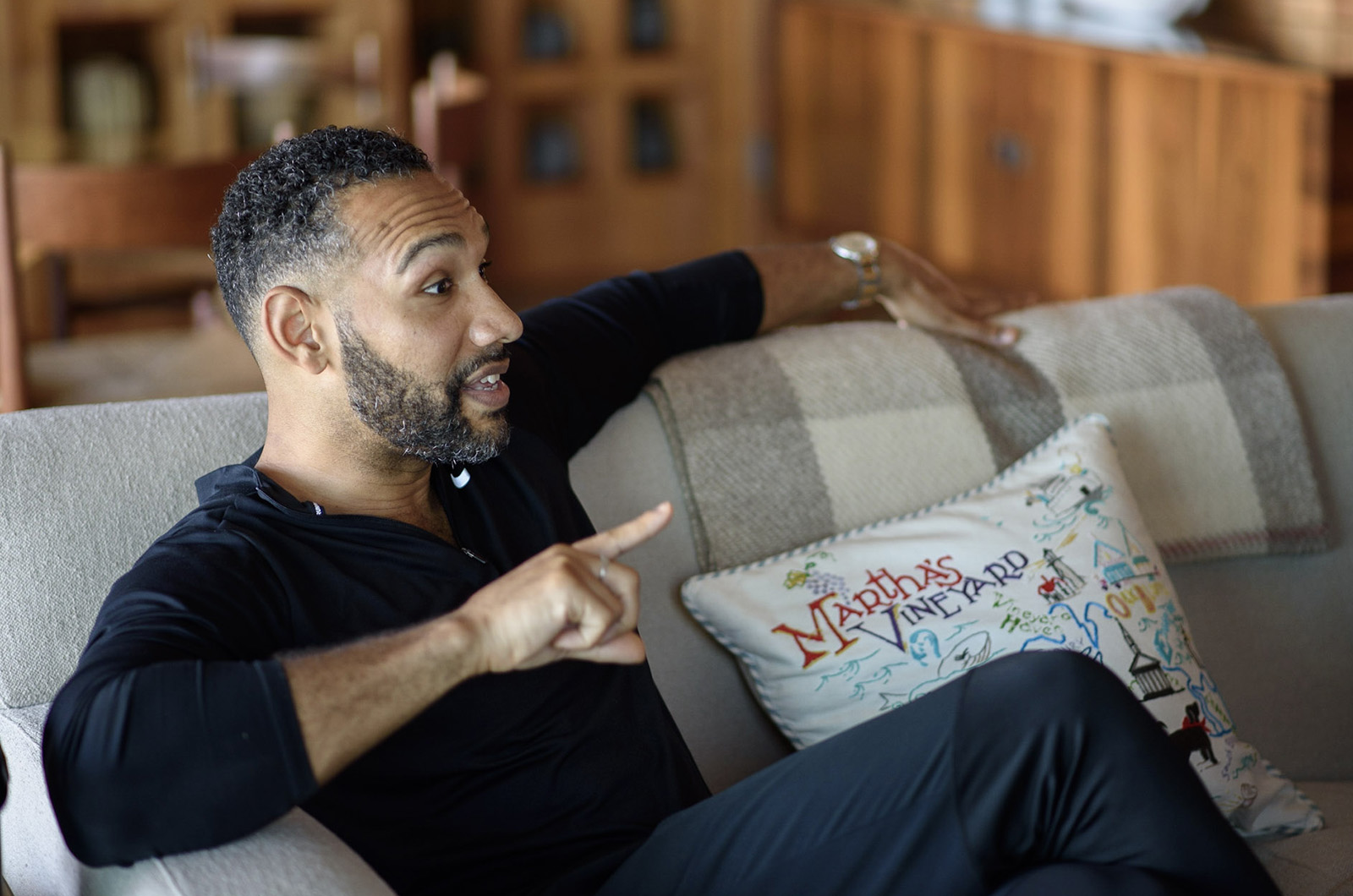An initiative in New York state prisons is showing the world what can happen when incarcerated people are given an opportunity to earn a college degree.
On Saturday, Monina von Opel and Edward Miller held a screening at the Grange Hall of an excerpt from College Behind Bars, a 2019 docuseries that challenges conventional thinking surrounding incarceration and punishment and shines a light on the Bard Prison Initiative (BPI).
“I am doing this event to raise awareness, hoping that by seeing this profoundly-moving film, the program will get talked about and then supported by many more people,” Ms. von Opel told the Gazette prior to the screening.
The screening was followed by dinner and a discussion with Max Kenner, the initiative’s founder and executive director; Dyjuan Tatro and Shawn Young, two program alumni who work at the Bard Prison Initiative; and Lynn Novick, the director of the docuseries.
Produced by Ken Burns, the Emmy-nominated series follows a group of students and their families, including Mr. Tatro.
Mr. Kenner founded the Bard Prison Initiative in 1999 when he was an undergraduate student at Bard College, a liberal arts college in Annandale-on-Hudson, N.Y. It now operates in seven New York state prisons and has awarded more than 600 college degrees since 2005.
To Mr. Kenner, Mr. Tatro and Mr. Young, the program has a number of goals, but it begins with radically democratizing higher education.
“We spend more money imprisoning people in this country than it would cost to make all of our public colleges and universities tuition free,” Mr. Tatro said.
“Mass incarceration is a monumental public policy failure,” he continued. “We’re not going to correct for all of that at BPI, but we are the model for how we can be correcting that.”
He emphasized that the program is many things, but most importantly it provides something that its participants wanted all along but lacked the opportunity to pursue: a college degree.
Most participants are working towards associates’ degrees, while some students earn bachelor’s degrees as well, according to the film.
Mr. Tatro is now Bard Prison Initiative’s senior government affairs officer.
“I’m someone who spent 12 years in prison, and the opportunity to go to college in prison radically changed the trajectory of my life,” he said.
Mr. Tatro said he has two brothers who have both been in prison but didn’t have the opportunity to enroll in a college program. Today, their lives are radically different, he said.
“Why I work at BPI today is because I’m very interested in other incarcerated people and formerly incarcerated people having access to education and opportunities that I have had access to,” Mr. Tatro said.

Shawn Young, BPI’s project leader for upstate reentry and the capital region initiative, works to identify opportunities for BPI students and alumni who are released from prison. Reentry is not as simple as leaving prison, getting a job and an apartment and trying to adjust to life outside of prison, he said.
Mr. Young said guidance generally begins about a year before a BPI student’s reentry, and that much of his work is focused on bringing more resources upstate.
“Much of our work up to that point had been in New York City and was very successful,” Mr. Young said. “But the same infrastructure didn’t necessarily exist upstate. That’s why I’m so happy to be a part of growing those opportunities there.”
Mr. Young developed a program called Freedom is a Must that helps the formerly incarcerated find housing, which he believes is a cornerstone of successful reentry to their communities.
For Mr. Tatro this kind of support after prison is essential for success.
“I walked out of prison after 12 years and the state gave me $40 and a bus ticket — that’s it,” Mr. Tatro said. “After 12 years, they don’t even give you a state ID.”
It’s one of the ways the system sets people up for failure, he continued.
Because of BPI’s help, Mr. Tatro was able to enroll at CUNY to keep working towards his degree, which he then finished at Bard. He went on to work in politics and became the first formerly incarcerated person to work at the senior level of the Democratic Congressional Campaign Committee before returning to BPI as an employee.
The docuseries shows students at all stages of the process and it allows viewers to meet them, along with their families, while incarcerated, providing more context.
“By the time you learn what I’m in prison for, you also learn that it’s not the most important detail of my life,” Mr. Tatro said.
Mr. Kenner said the film often surprises viewers because it shows that incarcerated undergraduate students “have the capacity to be as ambitious and curious and as accomplished as undergraduates anywhere.”
Challenging assumptions and showing people that the program works is key to keeping it going, Mr. Young said,
“We’re in a space now where public money is now available because of many efforts from individuals like Dyjuan and more,” Mr. Young said.
But similar programs have also lost funding over the years through bipartisan efforts such as the crime bill that passed in 1994.
“Don’t take it for granted, alright? It can be gone again,” Mr. Young said. “So, remain vigilant, because the importance of this work is key.”
The docuseries College Behind Bars is available for free online through PBS Learning Media. Information about how to support the program can be found online at bpi.bard.edu.





Comments
Comment policy »